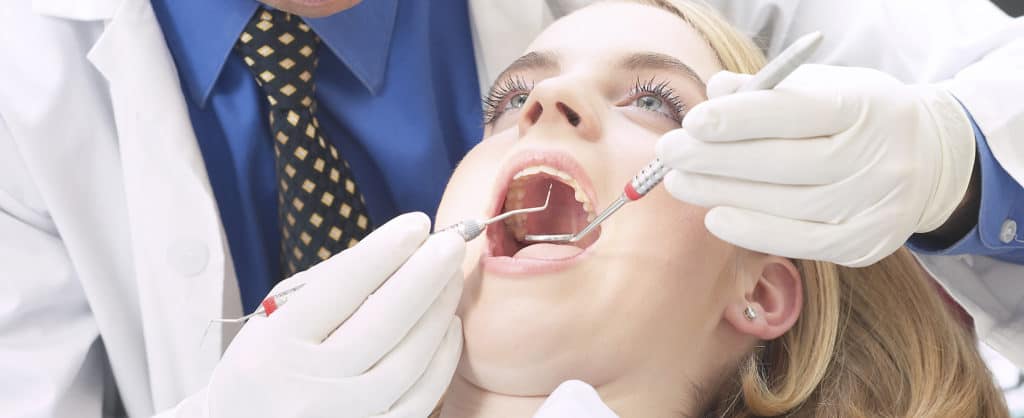What is Halitosis and What are the Causes?
Halitosis is a medical term meaning chronic bad breath. When most people brush their teeth, oral odor disappears. However, lingering bad breath may be difficult to self-diagnose because you may become familiar with your scent so that you may not notice the pungent odor that bothers others. Bad breath impacts your social life, work and other aspects of daily living and it can do the same for your kids if they experience this problem. If you cannot combat bad breath with regular brushing and flossing, you are likely to have halitosis.
There are numerous causes of bad breath. Your dentist can identify what causes halitosis in your mouth. Common causes of bad breath are gum disease, poor oral hygiene, unhealthy lifestyle choices, pungent foods and medical conditions.
What Causes Halitosis?
- Poor Dental Hygiene – The primary reason people get halitosis is poor dental hygiene. Gum disease, cavities, failure to keep dental appointments and improper cleaning of your teeth, dentures or braces can result in bad breath. When food gets embedded between your teeth, it causes bacteria to form. The bacteria may create an odor and facilitate dental problems.
- Bad Lifestyle Decisions
- Diet- Foods with strong scents can trigger bad breath. Coffee, garlic, onions, curry, fish, acidic beverages and alcohol promote bad breath; sometimes these foods induce belching or stomach issues. Odiferous foods stay in your body until you excrete them.
- Smoking or Chewing Tobacco – Tobacco products stain your teeth and cause a lingering odor that can make your breath undesirable. Smoking also aggravates your gums and hastens tooth decay.
Medical Conditions that Cause a Bad Breath Smell
Diabetes can cause halitosis because the body uses fatty acids to regulate the glucose metabolism when it does not have sufficient insulin. Unfortunately, this produces ketones, which are also created by eating a low-carb diet. Ketones can trigger an offensive odor in the mouth.
Other illnesses that can facilitate bad breath are blood disease, lung cancer and kidney problems. Additionally, sinus infections, tonsil infections, anorexia nervosa and illnesses that promote mucus can create chronic bad breath. Dry mouth can also facilitate halitosis because saliva helps rid your mouth of bacteria.
To determine if your bad breath is a medical problem, the dentist will sniff your breath and look at your tongue. He may also scrape your tongue with a tool. His inspection will determine whether the odor is related to a dental problem, gum disease, poor dental hygiene or a medical problem.
The Different Types of Bad Breath
If you have bad breath, testing to determine the type of bad breath is crucial. When you know what causes halitosis, your dentist can identify a treatment.
Fruity Breath
The most common diseases linked to fruity breath are diabetes and diabetic ketoacidosis. Diabetes can restrict blood flow to your gums and other body parts. When your gums get an insufficient supply of blood, they become susceptible to infection. The production of ketones in diabetic patients is another cause of fruity breath. Too many ketones can result in diabetic ketoacidosis, which is life-threatening. Symptoms are fruity breath, abnormal urination, pain and nausea, disorientation, gasping for breath and high blood sugar.
Fecal Breath Odor
When your breath has the scent of feces, you may have a bowel obstruction. It is not uncommon for vomiting to be a symptom of this condition.
Ammonia Breath Odor
Ammonia breath is likely to be a symptom of chronic kidney failure.
How to Get Rid of Halitosis: Treatment from Your Dentist
Since most people suffering from halitosis have dental problems or poor oral hygiene, treatment usually requires improved dental hygiene. Your dentist can show you how to brush your tongue, teeth and floss correctly to help combat the issue. He will also recommend that you rinse with antibacterial mouthwash. However, patients should avoid rinses containing alcohol because it has a drying effect that can promote bad breath. Keeping your dental appointments is also crucial to excellent oral care.
In addition to cleaning your teeth, changing your diet can help eliminate debris that facilitates dental problems. Sticky and sugary sweets can promote tooth decay and bad breath. Removing them from your diet should help with the issue.
If you notice your breath is bad, or a close friend or family member mentions it, schedule a dental appointment. Acknowledging your bad breath by seeking professional help is a crucial step toward treating it and preventing further medical problems.
Natural Remedies for Bad Breath
Crisp vegetables can facilitate saliva, and parsley or mint can help combat bad breath. Peppermint, eucalyptus, wintergreen, and other natural oils can be more effective for diminishing bad breath than mouth rinse because the oils may last for a longer period than the rinses. Essential oils can minimize inflammation and decay that leads to halitosis. Avoid food treated with pesticides by opting for healthy, fresh, organic foods that will not promote bad bacteria.
Other Treatments for Halitosis
Keeping sugar free mints, gum or breath spray available allows you to freshen your breath anywhere. If your mouth is dry, keeping it moist can facilitate saliva that can help reduce bacteria. Drink plenty of water, and use saliva substitutes from your local pharmacy. A humidifier can create moisture and work to reduce dry mouth. Try to eliminate your intake of caffeine and tobacco.
If you have chronic bad breath and live in the Boulder, Colorado area, do not let bad breath shake your confidence, interfere with your relationships, humiliate you or prevent people from desiring your company. Contact Dr. Evans to help your breath and smile shine.
